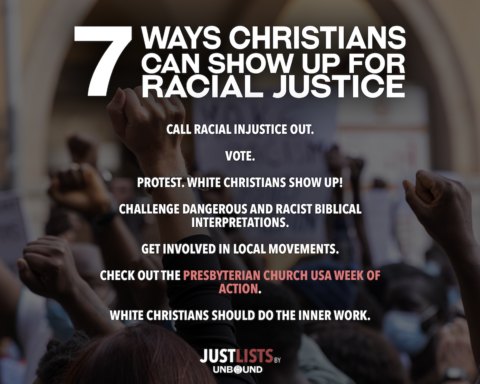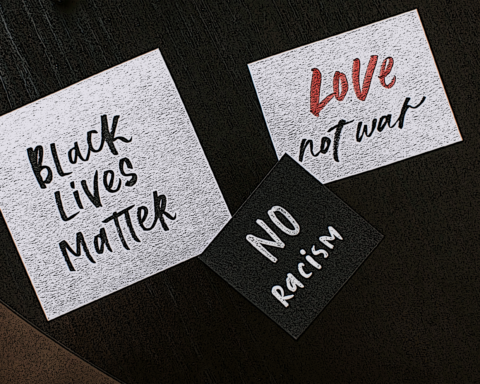Presbyterian Racial Ethnic Schools and Colleges

Emilio Vazquez is originally from Mexico City. He was attending a private school in his hometown and had never imagined that attending high school anywhere other than Mexico City was an option for him. That all changed 4 years ago, when he started having conversations with the Presbyterian Pan American School (‘Pan Am’ for short) in Kingsville, TX.
“My church at home has a relationship with Pan Am, and some of my family are alumni/ae. My parents and I did some research and learned that Pan Am could be an affordable option for me.”
Now a senior, Emilio credits his three years at Pan Am as being truly transformative. “The transition from my life in Mexico to my life at Pan Am was a bit of a shock. I had to learn to do things for myself that I didn’t think much about before, like my laundry. Adjusting to being independent and learning to manage my time, to understand and adhere to new rules while learning about and living in a different country – it all felt a bit overwhelming. It took some time and a lot of support from staff, but today I’m grateful for my experiences at Pan Am. I’ve created a life for myself here. I’m student council president, a member of the National Honors Society, and I run track. In Mexico City, I went to school, but here at Pan Am, I’ve built my life.”
The Presbyterian Pan American School

What is today the Presbyterian Pan American School was formed in 1956 when two schools – The Texas-Mexican Industrial Institute and The Presbyterian School for Mexican Girls – merged and found a home in Kingsville, TX. Both schools were initially founded in the early twentieth century by Presbyterians Rev. James W. Skinner and Berta Murray, respectively.
From the beginning, Pan Am has distinguished itself with its commitment to preparing racial and ethnic minority students for university-level education. A fully accredited coeducational college preparatory boarding school and day school, Pan Am’s program focuses on academic excellence in preparation for college, spiritual development in a Christian environment, and leadership and service training. Students enrolled at Pan Am participate in a six-hour workweek in addition to extra-curricular and volunteer activities. By May of each year, 100% of Pan Am graduates have been accepted to colleges or universities in the United States or another country.
Spiritual Life
Emilio’s story is similar to those of many other students who attend Pan Am School and other racial ethnic schools and colleges. Students come with varied cultural and religious backgrounds – some bring a Roman Catholic heritage, some are Lutheran or Methodist, and others come from countries where their religious practices are illegal. As such, spiritual formation programs at Pan Am seek to nurture faith in God through Jesus Christ by providing a safe environment and diverse opportunities for students to develop their character and deepen their faith. “There is no assumption of what our students will bring to Pan Am. We recognize that students come here from all walks of life,” said Mary Ellsworth, director of spiritual life at Pan Am. “We start with the basics to meet our students where they are. We talk about what the Bible is, where it came from, and why we study it. From there, our students progress through Bible exploration classes, in which they are encouraged to ask questions and share in open dialogue, often challenging things in ways they may not have dared to in the past.”

Mary notes that the Bible exploration class is intended to teach students about the content of the Bible and the history and cultures surrounding its formation, not to convert students to the Presbyterian faith. “Pan Am is a Presbyterian-related school, but more importantly, it is a Christian environment. Everyone needs to feel accepted – belonging is critical. I want students to know that this is a place where they belong and that they don’t have to be ‘cookie-cutter’ students to fit in.”
Emilio’s time at Pan Am has deepened and transformed his own faith. In Mexico, his family attended church periodically; today, Emilio experiences his faith evolving as he attends church multiple times each week. “My faith journey here is also touching the lives of my family members back in Mexico. My family used to attend church every so often. Sharing my experiences at Pan Am has encouraged my parents and other family members to attend church regularly and to explore their own faith. It’s been pretty amazing to see.” Thanks in large part to his time spent at Pan Am, Emilio is preparing to attend college in the United States and plans to study biomedical engineering.
Academics
“Students at Pan Am are dedicated to learning. Many students in traditional public schools go to school because they have to. Students here come from around the world – leaving behind their families and familiar surroundings – to learn,” notes Dr. Doug Dalgish, president of Presbyterian Pan American School. “We’ve currently got students here from Mexico, Rwanda, South Korea, China, Taiwan, and several other countries.”. Ellie Perez, principal at Pan Am, adds, “Schools like Pan Am are truly unique. The combination of education, spiritual life, and the multicultural and intercultural experiences that students have during their time here helps them develop into truly amazing ambassadors and leaders. This is a place where students can come exactly as they are to develop their skills, pursue their passions, and deepen their faith at the same time.”

For Marianne Canales, attending Pan Am is an opportunity for her to nurture her artistic gifts. She too is originally from Mexico – as are about three-quarters of the students who are currently enrolled. Her mother saw Pan Am as an opportunity for her daughter to attend school in the United States and to nurture her gifts in a faith-based setting, in the hopes that such an education would offer her daughter a life filled with opportunities for advancement and growth.
Marianne is currently finishing up her junior year of high school and her first year at Pan Am. “So far, my experience at Pan Am has been good. There is a lot of work, and school here is different than it was in Mexico. But I’m learning a lot and am really enjoying it.” Marianne has had the opportunity to develop her artistic talents through her coursework, explore her faith, and experience cultural diversity and interculturality like she never could have done in her hometown.
Menaul School
Students at Menaul School, another Presbyterian racial ethnic school located in Albuquerque, NM, share experiences that are similar to those of Pan Am students. Freshman Mika Nguyen is originally from Vietnam. She moved to the United States and chose to attend the school after hearing about the diversity and educational opportunities Menaul offers. “I came to the United States from a traditional Vietnamese public school background. My sister used to live in Albuquerque and had friends that went to Menaul. She always told me about the school and all it offered to her friends, and I wanted to experience that, too.”
 In the late nineteenth century, Presbyterian minister Rev. James A. Menaul perceived a need for accessible, high-quality education in the Albuquerque area. He sought and received Presbyterian mission funding for a boarding school that would serve Spanish-speaking boys from New Mexico and in 1896, purchased some 200 acres at the present Menaul School location. Today, Menaul is a co-ed facility that serves students in grades 6 through 12 with a college preparatory curriculum. Menaul School has graduated more than 3,000 students since they opened their doors; today, 100% of students who graduate from the school go on to pursue higher education.
In the late nineteenth century, Presbyterian minister Rev. James A. Menaul perceived a need for accessible, high-quality education in the Albuquerque area. He sought and received Presbyterian mission funding for a boarding school that would serve Spanish-speaking boys from New Mexico and in 1896, purchased some 200 acres at the present Menaul School location. Today, Menaul is a co-ed facility that serves students in grades 6 through 12 with a college preparatory curriculum. Menaul School has graduated more than 3,000 students since they opened their doors; today, 100% of students who graduate from the school go on to pursue higher education.
___________________________________________
For more than one hundred years, racial ethnic schools and colleges have provided quality education to those who may otherwise find themselves pushed to the margins or slipping through the cracks.
___________________________________________
Mika feels that she is gaining valuable experience from Menaul that wouldn’t have been available to her at many other schools. “From a student perspective, I think racial ethnic schools like Menaul are important because they help expand students’ knowledge and cultural experience. I have the opportunity to engage with students from a variety of different countries and cultures in a safe space. I’m learning about myself and expanding my own ideas while also learning about different cultures and getting a glimpse at how culture as a whole plays into examining and addressing challenges and opportunities. Even as a freshman, I find myself challenged every day. I’m excited to see how the rest of my journey unfolds at Menaul.”
Echoing sentiments at Pan Am, students who attend Menaul credit faculty and staff for helping to make such a major transition feel relatively seamless. “There will be – and have been – some bumps along the way, but the staff here is so nice and friendly. They have been very supportive as I continue to adapt to life in America,” notes Mika.
Academics & Spiritual Life
Menaul – much like Pan Am – is a college preparatory school with a focus on developing confidence and integrity and providing the foundation for life-long learning and ethical leadership. Academics and spiritual life focus on the school’s core values of diversity, respect, intellectual curiosity, responsible leadership, and spiritual growth.

Each day (except for Wednesdays), students participate in a chapel service or devotional period that has been specifically designed to set the tone for the day. Much like at Pan Am, students come to Menaul from a variety of religious traditions. The focus of spiritual life and campus ministry is to nurture the moral and ethical development of students within the context of a community grounded in a Christian tradition.
“I’m not Presbyterian. In fact, I don’t have any religious affiliation,” notes Mika. “Religion classes and spiritual life here don’t make me feel any pressure to change that. They are simply helping me see things from a new and different perspective, challenging me to think outside of the box.”
___________________________________________
“Everyone needs to feel accepted – belonging is critical. I want students to know that this is a place where they belong and that they don’t have to be ‘cookie-cutter’ students to fit in.”
___________________________________________
For more than one hundred years, racial ethnic schools and colleges have provided quality education to those who may otherwise find themselves pushed to the margins or slipping through the cracks. Many of the students at these racial ethnic colleges are the first in their families to attend college. Others come from families with low-to-moderate incomes. The secondary schools receive students earlier than their traditional counterparts and work to prepare them for acceptance at institutions of higher learning. While not all students served by racial ethnic schools and colleges have struggled to succeed in a traditional education system, many do find these schools to be places where their value is affirmed and they can access the additional support they need to succeed.
*****
AUTHOR BIO: Kristena Morse is the Communications Strategist for Racial Ethnic & Women’s Ministries.
Learn more about Presbyterian Racial Ethnic Schools and Colleges!
Read more articles in this issue: A Pedagogy for the Distressed!
Read more articles in the “Strategies and Solutions” section!





Unbound Social